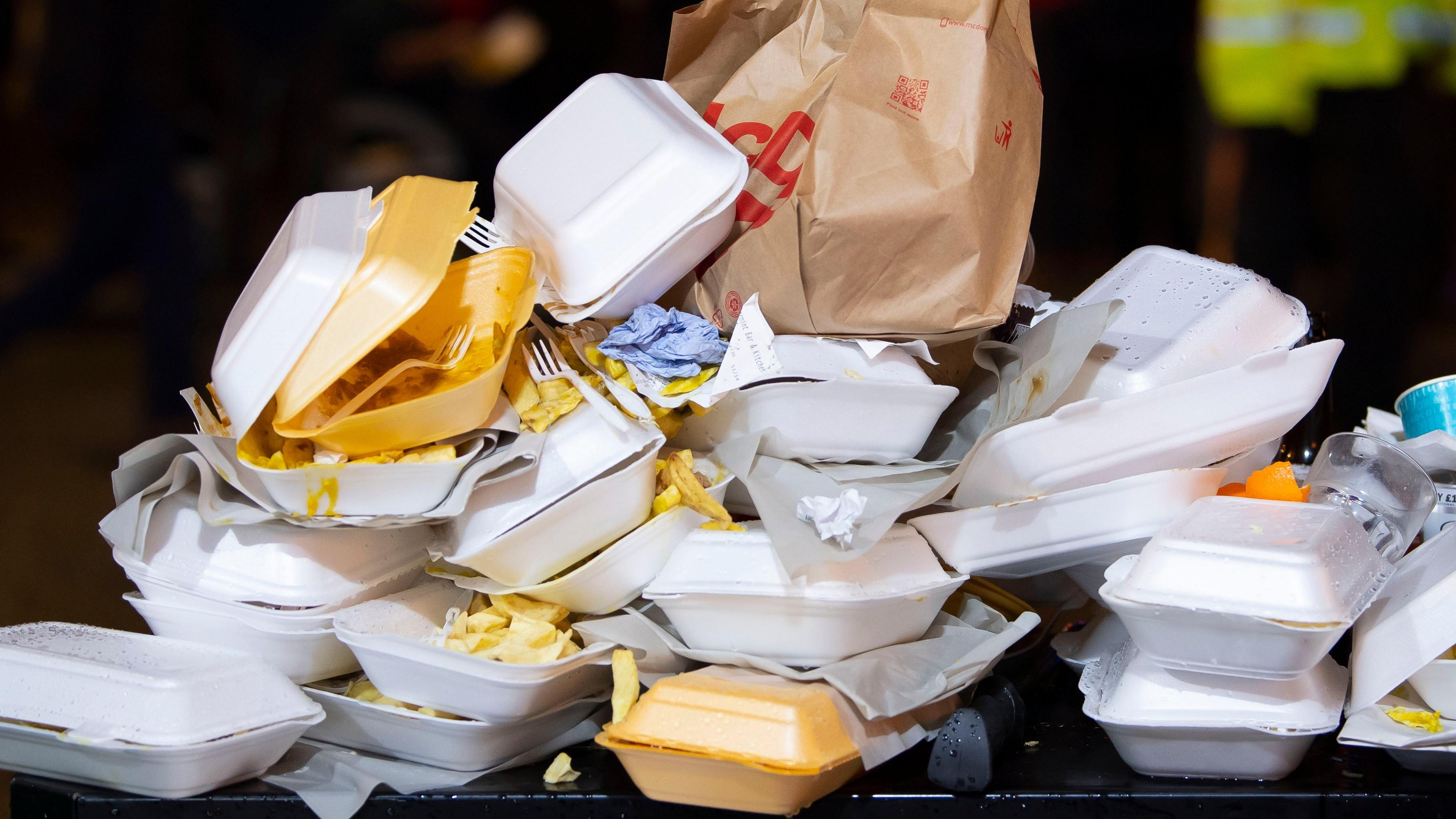Can Plastic Takeout Containers Ever Really Be Sustainable?
Some companies are working to build a better takeout container, but we all need to step up for it to work.
A few years ago I encountered something I hadn't seen before: While going to pick up lunch from Just Salad, a fast-casual salad joint, I was given the option to take my lunch to go in a reusable container. I chose to try out the blue plastic container with Just Salad's logo emblazoned on the side, which Just Salad told me I could bring along next time I visit to do my part in reducing waste. An excellent idea in theory, but I found myself forgetting to bring my already purchased container. Instead I now have three Just Salad containers that are excellent for leftovers but have yet to house another Just Salad. I want to do better.
In a time when we're discovering to-go foods are being wrapped in material that contains toxic "forever chemicals"—which Axios reports "can last for hundreds of years without breaking down" and "have been linked to adverse health effects in humans and animals"—an alternative feels more necessary than ever for not only the environment, but our personal health. And this will have to go beyond even bringing your own cup to Starbucks. The biggest hurdle seems to be awareness of the companies that are working to solve this problem and the training it will take for customers to abandon single-use to-go containers forever and embrace the blue Just Salad boxes of the world.
How restaurants and delivery apps are approaching reusable containers
Just Salad offers its reusable containers for $1, then upon subsequent visits customers with the bowl can get one free salad topping. On its website the company says reusable bowls are being beta tested for pickup and delivery customers, and touts "Zero Waste Hubs," stations in offices where you can pick up your salad in its reusable bowl and drop it off to be cleaned and sanitized the same day. Under this return-and-sanitize system, you aren't necessarily using your Just Salad bowl every time, simply a Just Salad bowl.
The start-up DeliverZero follows a similar model, testing out the idea with participating restaurants via DoorDash and Caviar in New York City. When ordering through the company's site directly you can choose from included restaurants and receive your food in a reusable container at no charge—ordering through DoorDash or Caviar, you check a box for the container and are charged $.99. After receiving food you then have up to three weeks to return the box to any restaurant that uses DeliverZero.
What reusable container programs need to be successful
I don't want to knock these companies for trying—doing something is better than nothing. But the assumption that more and more people will get used to this system means that eventually more and more of these reusable containers will need to be produced, and counting in the times people may forget to return containers, that just increases production. And all those containers produced do eventually turn to waste.
Both Just Salad and DeliverZero's containers are made of polypropylene, a highly recyclable plastic as long as those items do end up in the correct recycling bins. If a collection of these things end up in the trash, the initial intent is moot. Education of consumers is key to making these programs successful from start to finish.
While both these concepts don't require you to remember to bring your own reusable container with you to obtain the food, there is still the burden of remembering to drop the container off somewhere after the fact. This could easily be worked into a constant pickup routine if you're a regular at a particular restaurant, but requires a bit more training when incorporated into delivery orders—maybe eventually the delivery folks will trade a container full of food for an empty one to erase that step.
There's still a ways to go before this practice becomes the norm at to-go and delivery restaurants, but it's worth stepping up and trying the systems that exist to see what works and what might eventually make a difference, one takeout salad at a time.
